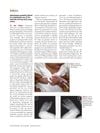Dermatological Medications and Local Therapeutics During Pregnancy
September 2014
in “
Elsevier eBooks
”
coal tar preparations tacrolimus antiseptics astringents antipruritics essential oils glucocorticoids pimecrolimus dithranol systemic retinoids topical retinoids UV light treatments oral photochemotherapy psoralens lice treatments scabies treatments permethrin minoxidil finasteride DEET cosmetics glaucoma therapy prostaglandins nasal decongestants cromoglicic acid antihistamines antibiotics acyclovir fluticasone nasal spray hemorrhoid medications vaginal therapeutics coal tar Protopic anti-itch treatments steroids Elidel Accutane retinoids UV therapy PUVA Nix Rogaine Propecia insect repellent glaucoma treatment nasal sprays cromolyn Zovirax Flonase hemorrhoid treatments vaginal treatments

TLDR Use some skin medications with caution during pregnancy; avoid strong steroids, certain eczema treatments, and systemic retinoids, but many topical treatments and nasal sprays are safe.
The document from 2015 provides guidelines on the use of dermatological medications and local therapeutics during pregnancy, emphasizing the importance of caution due to potential risks to fetal development. It states that while some treatments like coal tar preparations, tacrolimus, and certain antiseptics, astringents, antipruritics, and essential oils are considered safe for topical use during pregnancy, others such as very potent glucocorticoids, pimecrolimus, dithranol, and systemic retinoids are to be avoided due to their teratogenic effects. Topical retinoids, although not confirmed teratogenic in controlled studies, should be used with strict pregnancy prevention programs. UV light treatments are generally safe, but oral photochemotherapy with psoralens is not recommended. For lice and scabies, non-chemical treatments are preferred, and permethrin is the treatment of choice for scabies. Minoxidil and finasteride are contraindicated for hair loss during pregnancy. DEET should be used cautiously as a repellent, and cosmetics are safe if lead-free. Glaucoma therapy is acceptable, but prostaglandins should be reserved. Nasal decongestants have not shown risk, but lack systematic embryotoxicity studies. Other preparations like glucocorticoids, cromoglicic acid, antihistamines, antibiotics, and acyclovir are considered safe. A study with 26 women showed no developmental differences in newborns when using fluticasone nasal spray. Hemorrhoid medications and vaginal therapeutics are generally safe, but the use of outdated medications with controversial effectiveness is discouraged.




